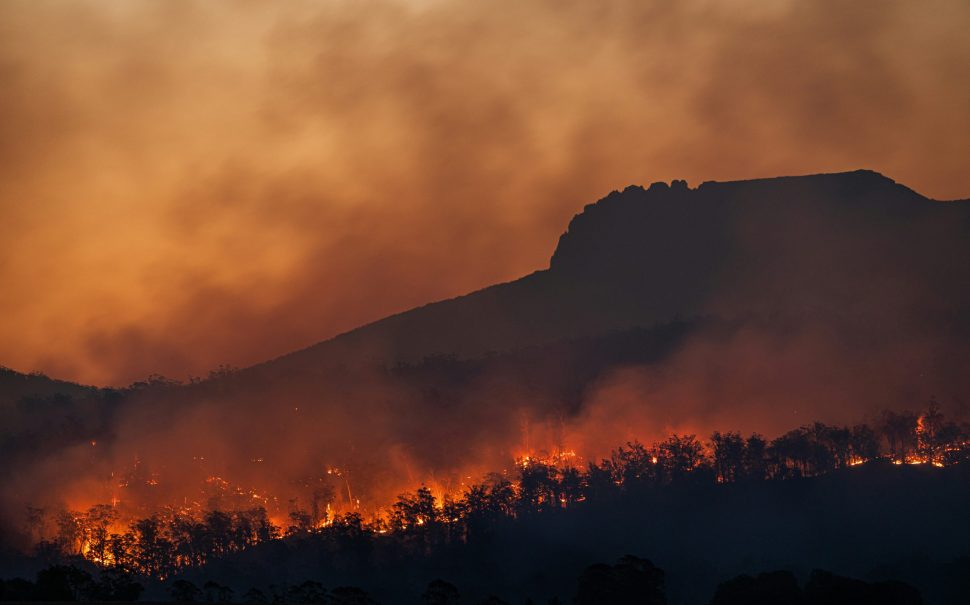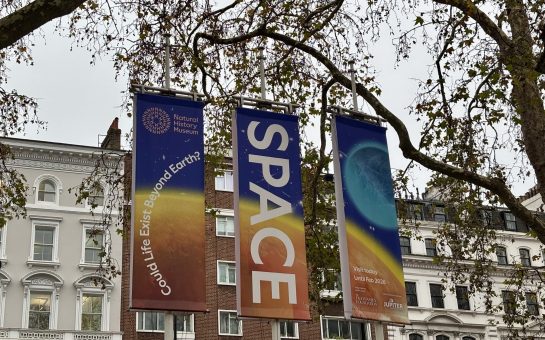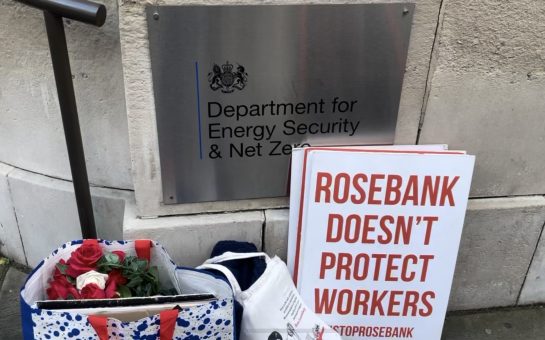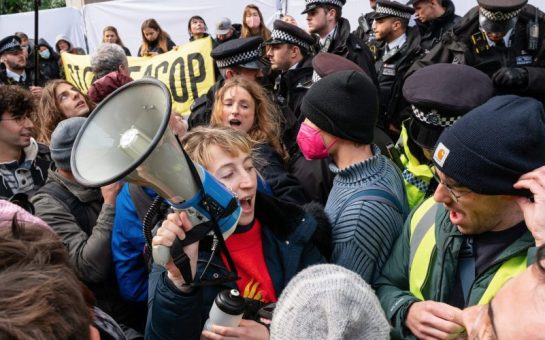Climate scientists have warned the 1.5C warming limit may be breached over the next three years in new study.
The research conducted by over sixty world-leading climate scientists came to fruition from an annual initiative where some of the global indicators of climate change are taken each year at the IPCC, the Intergovernmental Panel on Climate Change.
The authoritative source on climate science was published by the IPCC in 2021, and the study is updated each year using the same methods, but with a further year of data, and this year’s findings showed the emissions being up and the concentrations, meaning the amount of greenhouse gases in our atmosphere are up, and sea levels are rising.
Professor of Climate Science & Policy, Joeri Rogelj said: “The results of this study are actually worryingly unsurprising.
“We continue to emit currently record levels of greenhouse gas emissions into our atmosphere.
“We need to start reducing our greenhouse gas emissions, we should stop using our atmosphere as a waste bin and stop dumping pollution into the atmosphere.”
Rogelj said we can without any penalty or consequence in large parts of the world, emit climate pollution, carbon dioxide in our atmosphere, and this pollution holds long lasting consequences for multiple centuries to millennia.
In 1992, the UN and the UN convention on climate change decided that global warming and greenhouse gas emissions were a problem.
Up to 200 countries pledged to work towards limiting the rise in global temperatures to 1.5C above late 1800s levels, an agreement in 2015 to avoid major threats posed by climate change.
The 1.5C degree limit was set as a safety limit, a kind of danger line, and as more non-renewable energy sources are used, the climate will experience more damages and will be more intense and severe, hugely affecting vulnerable and poor populations.
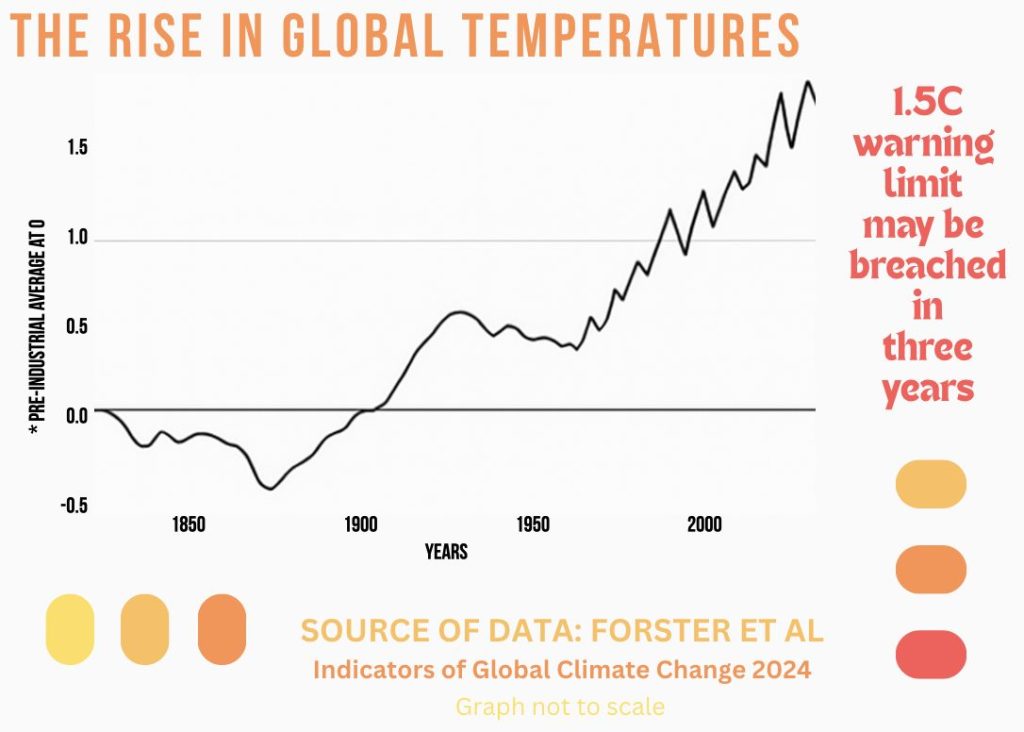
The UK Climate Change Committee is the government’s climate watchdog and they show how a transition of today’s level of climate pollution to a world where we can stop polluting can be achieved.
Joeri Rogelj said: “What this climate change committee shows year after year is that the government after setting the targets doesn’t necessarily walk the talk.”
Energy Secretary, Ed Miliband, said: “I’d like to thank the Climate Change Committee for its continued hard work and advice. This report highlights the significant progress that this Government has made to reduce emissions over the past year, which is the best way to deliver energy security for Britain with homegrown, clean power that we control so we can bring down bills for good.
“This Government has delivered the most significant investment in clean homegrown power in history – cutting bills for 200 schools and 200 hospitals, making planning decisions equivalent to powering two million homes, setting up publicly owned Great British Energy, sparking a new golden age of nuclear power, and bringing in new plans to upgrade millions of homes to cut bills for homeowners and renters.
“The only way to get bills down for good is by becoming a clean energy superpower and we continue to work tirelessly to deliver clean power for families and businesses.”
Exceeding 1.5C for those small societies mean very different compared to those in the developed world.
Rogelj discussed how today’s levels of global warming basically mean the end of societies for small island states due to global sea level rises.
He uncovered when coral reefs bleach, it means they are temporarily under very high stress, and if it happens regularly, they will be in a permanent state of decline and they will simply die back.
The climate scientist said as this has started, we don’t need to wait for 1.5 for extremely detrimental impacts to happen, as once we reach 1.5, we’ll see an extension of trends already seen.
As the world reaches 1.5C, it’ll be more likely to see very strong tropical cyclones, with more heatwaves and droughts, and these weather extremes will become the norm in which societies will have to adapt and live.
Governments must invest and use clean energy sources such as renewable energy sources to combat climate change, and climate scientists push for societies to have better insulation in their homes, saving energy, and to change our transport systems.
The UK became the first G7 nation to phase out coal-fired power, transitioning to renewable energy as the last remaining plant in Nottinghamshire was decomissioned at the end of September 2024.
A global coral bleaching event was recorded last year, with up to 80% of the tropical coral reefs bleached.
Professor Lisa Schipper, who specialises in climate adaptation and development, said: “People should be shocked, but it shouldn’t surprise us because we haven’t gotten emissions down.
“It’s shocking because it’s horrible.
“We’re almost seeing 1.5 has become a normal, it’s like it’s okay, and above 1.5, no, but below 1.5, okay, but that’s not right, we shouldn’t we should let nothing, it should be zero. There should be nothing in between zero. 1.5 is also not okay.
“It’s maybe also shocking that it’s not shocking because that means we’re sort of become a little complacent as well.
“We’re going to continue to have extreme events, we’re gonna continue to have this sort of incremental increase in warming, but the big question mark is around these tipping points, where we don’t exactly know where they are.
“They’re more fuzzy because they’re basically about where society reaches a level where we can’t cope any longer.
“The bigger issue is really gonna be the hunger, with stable crops, things that people need to eat that just disappear.
“The reality is that it may very well be that a lot of people also die.”
Schipper is calling for governments to be taking more action, to stop developing new coal plants and redirecting funding into renewable energy sources.
She says some countries are rapidly using up the carbon budgets that are there for the entire world, and once we use that carbon budget up and we’re at 1.5, we’ll have new problems.
The professor also says the 1.5 degree limit has been normalised, but the only acceptable limit should be zero, and whilst we don’t want to go over zero, we’re already past it.
Photo Credit – Unsplashed – Matt Palmer
